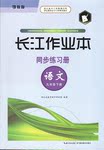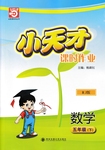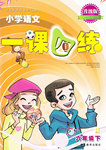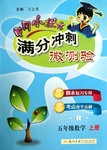
The word “sharp” can be __ to describe many different things in your home, classroom, and places of work. In this chapter, the writer __sharp pencils, meaning pencils with a very fine __.The writer does not like dull pencils. 。
We can also use “sharp” to describe the blades of knives. Knives also have points. We can use “sharp” to describe a __ kind of point, such as the sharp points of kitchen and steak knives. Scissors have blades, too, and we can describe these blades as sharp or dull. Furthermore, the points of scissors are __ sharp or rounded spending on the kind of scissors. Some tools, such as saws, scrapers, and garden tools, also have blades. We can use the words “sharp” and “dull” to describe the blades of these tools, too. Sharp knives, scissors, and tools are__to use. They cut things easily and quickly, without effort.?
“Sharp” can be used to describe the edges of furniture and __some containers. For example, the edge of a table or desk can be __.In addition; we can describe the edge of __ open can as sharp. The top of a can is sometimes sharp__ to cut your hand. A piece of __ from a broken jar or bottle is ordinarily very sharp.
__we sometimes use “sharp” to describe people. A person who appears sharp is very well __.A person who is sharp, on the other hand, is intelligent, smart, and__ learn and understand.
To summarize, “sharp” can be used to describe many kinds of __ that have blades, points, and edges. When we used it to describe people, it can mean nice looking, well dressed, or intelligent. It is an expensive word because it can be used in many different ways.
1.A. written???????? B. used???????? C. seen???????? D. taken
2.A. talks about???? B. takes care of?? C. doesn't like to mention??? D. makes up his mind to
3.A. sharp???????? B. color????????? C. point????????? D. edge
4.A. some???????? B. any????????? C. only????????? D. certain
5.A. either???????? B. neither???????? C. too?????????? D. very
6.A. difficult?????? B. easy?????????? C. interesting????? D. clean
7.A. for?????????? B. with?????????? C. of???????????? D. at
8.A. seen???????? B. sharp?????????? C. smooth??????? D. hard
9.A. an?????????? B. a????????????? C. the??????????? D. /
10.A. so as???????? B. in order???????? C. so that??????? D. enough
11.A. news???????? B. glass?????????? C. information??? D. advice
12.A. However???? B. Finally???????? C. Therefore????? D. In this way
13.A. prepared????? B. dressed???????? C. mannered????? D. served
14.A. easy to?????? B .is to??? ??????? C. to???????????? D. quick to
15.A. funny things?? B. knives???????? C. objects????????? D. containers
1.B
2.A
3.C
4.D
5.A
6.B
7.C
8.B
9.A
10.D
11.B
12.B
13.B
14.D
15.C
【解析】
试题分析:本文叙述了“sharp”这个词能够被用来形容你家里,教室,工作地点中很多不同的事物。短文介绍了这个词在不同的场合下不同的含义。
1.考查动词及对语境的理解。句意:“sharp”这个词能够被用来形容你家里,教室,工作地点中很多不同的事物。A.被写B.被使用C. 看见 D. 带走,拿走。B
2.考查固定短语及对语境的理解。句意:在这一章中,作者谈到尖锐的铅笔,A. talks about sth谈论某事 B. takes care of照顾,照料C. doesn't like to mention不喜欢提及D. makes up his mind to do sth 下定决心做某事.故选A。
3.考查形容词及对语境的理解。句意:意思就是带有非常尖的头的铅笔。A. 锋利的 B.颜色C. 点 D. 边缘。故选C
4.考查形容词及对语境的理解。句意:我们能有“sharp”这个词形容一种特定的尖类物体。A.一些 B任何C. 仅仅,只D.某个a certain+名词单数,某一个...。D
5.考查代词及对语境的理解。句意:另外,对于使用这种剪刀,其特点就是要么是锋利的,要么就是成圆形的A. 两者中的一个either A or B。B两者都不neither A norB.C. 也D. 很,非常。故选A。
6.考查形容词及对语境的理解。句意:锋利的小刀,剪刀,工具都很容易使用A. 困难的B. 容易的C.有趣的D.干净的。根据:They cut things easily and quickly, without effort.他们能够不费力的很容易很快的切东西。故选B,这些东西很容易使用。
7.考查介词及对语境的理解。句意: “sharp”也能用于形容家具的边缘,和一些容器的边缘。
A. 为了B.和...一起C. ...的D.在...根据:“Sharp” can be used to describe the edges of furniture ,可知填of,即the edges of containers容器的边缘,故选C。
8.考查形容词及对语境的理解。句意:例如,桌子边很锋利。A. 被看见 B. 锋利的C. 平滑的D.坚硬的。根据常识,桌子的角通常是尖尖的直角,故选B。
9.考查冠词及对语境的理解。句意:另外,我们能够把一个打开的罐头盒的边缘形容成锋利的。A. an B. a C. theD. /。根据open,以元音音素开头,故用an,故选A。
10.考查目的状语及对语境的理解。句意;一个罐子的顶部有时足够锋利能够切刀你的手。
so as to do sth B. in order to do sth C. so that+从句目的是...D. enough+名词,形容词/副词+enough。足够的....,故选D。
11.考查名词及对语境的理解。句意;一片从破损的广口瓶或玻璃瓶上掉下的玻璃通常非常锋利。A. 新闻B.玻璃C. 信息D. 建议。根据句意,从坏掉的玻璃瓶上掉下的应该是玻璃,故选B。
12.考查副词及对语境的理解。句意:最后,我们有事使用“sharp” 这个词形容人。A. 然而B.最后,终于C.然而D.用这种方式。在谈过剪刀,罐子之后,最后开始说人,故用B。
13.考查动词及对语境的理解。句意:一个显得锋利的人是穿着很好的。A. 准备B.穿着C.礼貌D. 服务。根据we used it to describe people, it can mean nice looking, well dressed, or intelligent我们用这个词形容人,它意味着好的长相,好的穿着及聪明。故选B。
14.考查短语及对语境的理解。句意:从另一方面来说,一个锋利的人是聪明的,机灵的,很容易学会,理解。A. 很容易做B 是去做C.去D. quick to learn表示“学得很快”。故选D。
15.考查名词及对语境的理解句意;“sharp”能够被用在形容很多种类的物体上,这些物体有刀片,有尖锐点,有边缘。A. 有趣的事情B. 小刀C.物体 D. 容器。根据:The word “sharp” can be _21_ to describe many different things in your home, 这个词能够被用来描述家里很多不同的事物,故选C
考点:科普环保类短文阅读。


 长江作业本同步练习册系列答案
长江作业本同步练习册系列答案 小天才课时作业系列答案
小天才课时作业系列答案 一课四练系列答案
一课四练系列答案 黄冈小状元满分冲刺微测验系列答案
黄冈小状元满分冲刺微测验系列答案科目:初中英语 来源:2011年广东省肇庆市中考英语试卷 题型:阅读理解
If you open today’s newspaper, what do you see? Ads! Look through a magazine. More ads! Turn on the TV. Still more ads! Everywhere you look, someone has something to sell.
Here are some ways ads get us to buy. Some ads use famous people. Stars are paid to sell a product. Think about it. Do they really know about medicine? Do they know about soft drinks? There people may be famous, but they may not know about what they are selling.
Some ads make you think you’re getting the word of an expert. They say, “Doctor said.” A man in a white coat comes on TV. He looks nice. “I use Bright and White,” he says. This man looks like a doctor. But he is an actor. He has been paid to sell this product.
Does soap have anything to do with a pretty child? But ads may show their product with something nice, such as the sun, the flowers and so on. Such an ad is about feelings rather than facts. Ads are full of strong words. Words like “new” and “improved” have strong influence. They can help a product sell. The soap may be called “Spring Rain”. A car may be called “Tiger”. Strong words work on our feelings.
Some ads make promises(承诺). But can they keep them? No. Some ads use our fear of being too late. “Buy now!” they say. “Selling ends soon.” Check to see if this is true. Don’t hurry. Take time to think. All ads hope we will buy something, do something, or think in a certain way. Know what ads are doing. Ask questions to yourself. Don’t let their words and pictures fool you.
1.Why do famous people appear in ads?
A. Because they know every product well.
B. Because they want to serve the people.
C. Because they can make money from the ads.
2.The underlined word “expert” in Paragraph Three probably means _____.
A.主持人 B.专家 C.演员
3.According to the passage, which of the following is NOT true?
A. The famous people may not know about what they are selling.
B. Some ads make promises to people and they can keep them.
C. Ads are full of strong words, such as “new” and “improved”.
4.According to the passage, we know that “Tiger” might be the name of _____.
A. a kind of car B. a kind of computer C. a kind of soap
5.What does the writer want to tell us?
A. We should not always believe the ads.
B. We should buy things that ads ask us to buy.
C. We should think about ads before buying things.
查看答案和解析>>
科目:初中英语 来源:2010-2011学年江西省中考模拟考试英语试卷 题型:阅读理解
As we know, there are differences between western culture and Chinese culture. We can see differences when we pay attention to the way words are used. Let’s look at the words about animals and plants. Most expressions in Chinese about the dog, for example, “a homeless dog”, “a mad dog”, “a running dog” and “a dog catching mouse”, have negative meanings. But in western countries, dogs are thought to be honest and good friends of humans. In English, people use the dog to describe positive actions. For example, “You are a lucky dog.” means you are a lucky person. And “every dog has its day.” means each person has good luck sometimes. To describe a person’s serious illness, they say “sick as a dog”. The word “dog-tired” means very tired. However, Chinese love cats very much. But in western culture, “cat” is often used to describe a woman who is cruel.
The rose is regarded as symbol of love in both China and some western countries. People think the rose means love, peace, courage and friendship. And the rose is the national flower of England, America and many other countries.
The words about plants and animals are used in positive or negative ways in different cultures. We can learn about many differences in cultures by comparing how some words are used.
1. “Every dog has its day.” means “________”.
A. Everybody in the world is lucky.
B. Each person lives his own way of life.
C. If one works hard, he’s sure to succeed.
D. Everybody has a time in life to be lucky.
2.What can we know from the passage?
A. Words show differences in culture.
B. Chinese people prefer dogs to cats.
C. Western people think cats to be good friends.
D. Rose is the national flower of all western countries.
3.Which statement is right according to passage?
A. People think the rose means love, peace, luck and friendship.
B. The words about plants and animals are used both in positive and negative ways in different cultures.
C. In China, people use the dog to describe negative actions.
D. In eastern culture, “cat” is often used to describe a woman who is cruel.
4.What’s the best title for the passage?
A. Negative or Positive
B. Different Countries Have Different Culture
C. Rose Means the Same in Chinese and English
D. What Dog and Cat Mean in English and Chinese
查看答案和解析>>
科目:初中英语 来源:2010-2011学年江苏省初三第一次调研英语卷 题型:阅读理解
Most animals protect(保护) their young until they are old enough to take care of themselves. A fish that swims in the rivers of South America protects its young in a very strange way. This fish, a kind of catfish, uses its mouth to keep its babies from danger(危险).
When this catfish lays(产卵) its eggs, it carries them in its mouth. From what we know, it does not eat during this time. After the eggs hatch(孵化), the fish swims with its young to protect them. It opens its mouth when danger appears(出现), and the tiny fish swim inside. They swim out only when it’s safe again.
These catfish may have a peculiar way to protect their young, but it seems(好像) to work.
1.The best title(标题) is _____________.
A. Staying Away From Danger B. How A Fish Protect Its Young
C. Laying Eggs D. A Cat That Swims
2. The catfish in the story live in _________________.
A. lakes B. the sea C. rivers D. North America
3.The young fish are ____________________.
A. tiny B. large C. yellow and gold D. very brave
4.If the young fish were not near their parents, they would be ______________.
A. safer B. in greater danger C. happier D. less hungry
5. The word “peculiar” in the story means ________________.
A. easy B. useless C. strange D. dangerous
查看答案和解析>>
科目:初中英语 来源:2013届江苏省初二2月测试英语试题(解析版) 题型:阅读理解
When you are reading something in English, you may often meet with a new word. What’s the best way to know it?
You may look it up in the English-Chinese dictionary. It will tell you a lot about the word: the pronunciation, the Chinese meaning and how to use the word. But how can you know where the word is thousands of English words? How to find it in the dictionary both quickly and correctly?
First, all the English words are arranged(安排) in the letter order. In the dictionary you can first see the words beginning with letter A, then B, C, D…. That means, if there are two words “desert” and “pull”, “desert” will be certainly before “pull”. Then if there are two words both beginning with the same letter, you may look at the second letter. Then the third, the fourth… For example, “pardon” is before “plough”, “judge” before “just”, etc.
Do you understand how to look up in the dictionary?
The dictionary will be your good friend. I hope you’ll use it as often as possible in your English study.
1.This passage is about______.
|
A.new words in writing |
|
B.different dictionaries |
|
C.the best way of reading |
|
D.using an English-Chinese dictionary |
2.In the dictionary you may not find_______.
|
A.how to pronounce the word |
|
B.the spelling of the word |
|
C.who used the word first |
|
D.how to use the word |
3.In an English-Chinese dictionary, the last word______.
|
A.begins with Z |
B.begins with A |
|
C.is a short one |
D.is not often used |
4.Which group of words is in the right order in an English-Chinese dictionary?
|
A.perhaps, produce, plenty |
|
B.straight, subject, surprise |
|
C.century, center, business |
|
D.foreign, entrance, headache |
5.In the passage the writer tries to tell us that_______.
|
A.we have to use a dictionary when we read something in English |
|
B.an English-Chinese dictionary can tell us everything about a word |
|
C.an English-Chinese dictionary can help us a lot in our English study |
|
D.all English-Chinese dictionary are the same |
查看答案和解析>>
科目:初中英语 来源:2010年甘肃省定西市毕业升学考试英语卷 题型:阅读理解
What’s the most important thing for you to have in your life? Someboy mentions hard-work, others suggest knowledge, love and luck.
If you arrange the 26 English letters alphabetically(按字母表的顺序)and use numbers to represent each of them, for example, 1 for a, 2 for b, 3 for c…, you can change an English word into a number. So hard-work becomes 8+1+18+4+23+15+18+11=98, meaning 98 is its mark; knowledge: 11+14+15+23+12+5+4+7+5=96, while love :12+15+22+5=54, and luck : 12+21+3+11=47, a small mark. None of these words can give one a full mark. What about money or prayer(祈祷)? They can’t , either.
Then what else? Don’t be worried. You can always find an answer to a problem in your life, when you change your way of looking at things or doing things, or your attitude(态度).Yes, attitude is the word. See for yourself: attitude:1+20+20+9+20+21+4+5=100,a full mark.
Different attitudes lead to different courses of life. Most times people hope for a better life. It is possible that one will have a change for the betterr after one has changed one’s attitude.
When you change your manner and became friendly towards others, you’ll meet more smiling faces towards you.In the same way, if you take a positive(积极地)attitude towards failure(失败),you’ll find it’s also rewarding though it has caused you losses.
1.In the writer’s opinion , what is the most important things in a person’s life?
A.Hard-work. B.Knowledge. C.Money. D.Attitude.
2.According to the passage, if you meet with problems, the best way out is to ___________.
A. ask for helpf from others B.say your prayers to God
C.change your attitude D.try maths-solving methods
3.From the passage we can learn that ______________.
A.diffrent attitudes come from different courses of life.
B.mathematics can solve every problem easily in our daily life
C.failure sometimes can bring you good if you take a positive attitude
D.none of the English words except “attitude” equals to 100 or more
查看答案和解析>>
湖北省互联网违法和不良信息举报平台 | 网上有害信息举报专区 | 电信诈骗举报专区 | 涉历史虚无主义有害信息举报专区 | 涉企侵权举报专区
违法和不良信息举报电话:027-86699610 举报邮箱:58377363@163.com